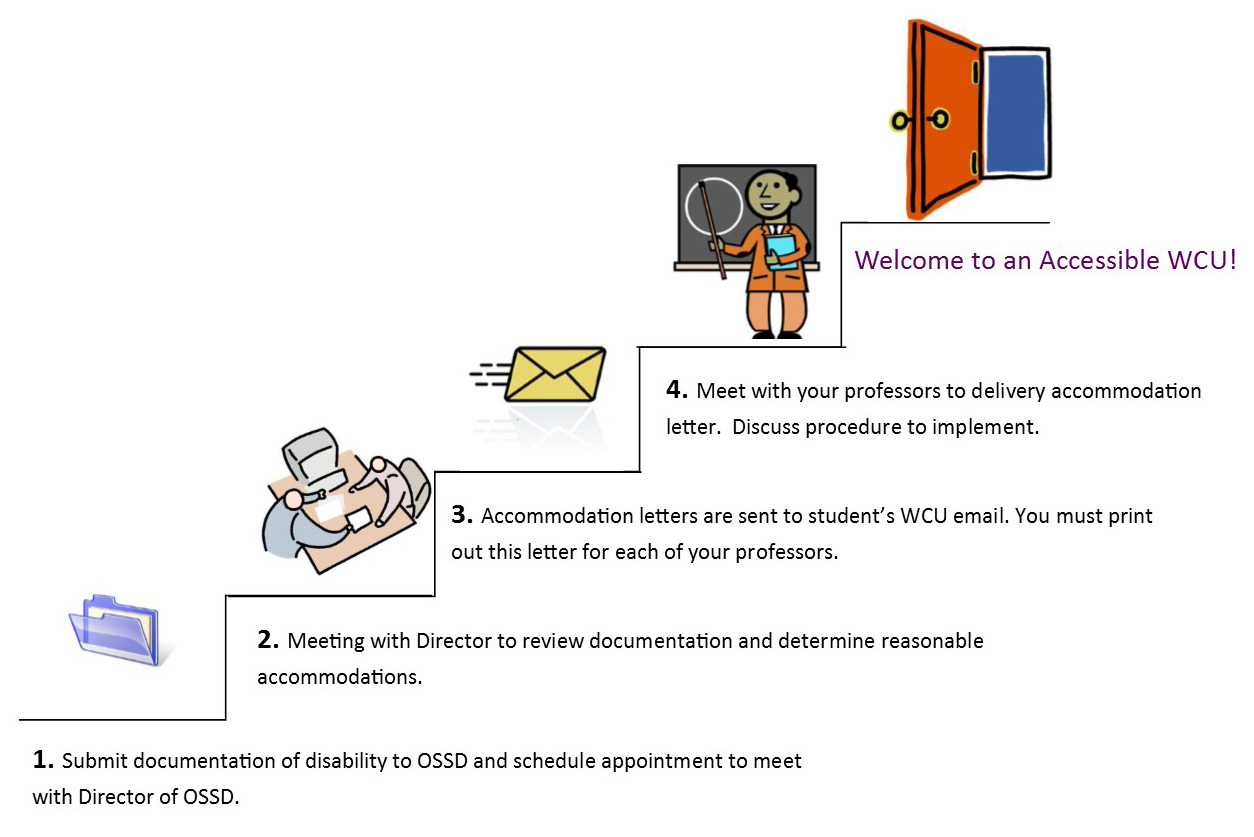Who Determines if a Student is a Qualified Individual and What Accommodations are Necessary
A combination of the student, the University, and professional/treating medical provider determines qualifications for disability. The student must submit an application and record of disability, including documentation from a professional that identifies and substantiates the disability. OEA is the designated office at WCU that obtains, coordinates, and controls disability related documents; certifies eligibility for services; and determines reasonable accommodations.
OEA conducts a case-by-case analysis and evaluates the student, using the following criteria:
- Documentation of the disability from qualified professionals provided by the student.
- Information gathered from the individual student during the intake process.
- Information from University personnel regarding standards for course, activities, jobs and facilities.
Major Life Activity
Statute and case law have expanded this definition over the years. Currently the ADA defines a major life activity as:
- Caring for oneself
- Performing manual tasks
- Seeing
- Hearing
- Eating
- Sleeping
- Walking
- Standing
- Lifting
- Bending
- Speaking
- Breathing
- Learning
- Reading
- Concentrating
- Thinking
- Communicating
- Working
Major life activity also includes major bodily functions such as:
- Functions of the immune system
- Normal cell growth
- Digestive
- Bowel
- Bladder
- Neurological
- Brain
- Respiratory
- Circulatory
- Endocrine
- Reproductive functions
If you would like more information about Section 504, the ADA, or faculty responsibilities, feel free to
contact the Office of Educational Accessibility(107 Wayne Hall, 610-436-2564) or access the OEA website.

